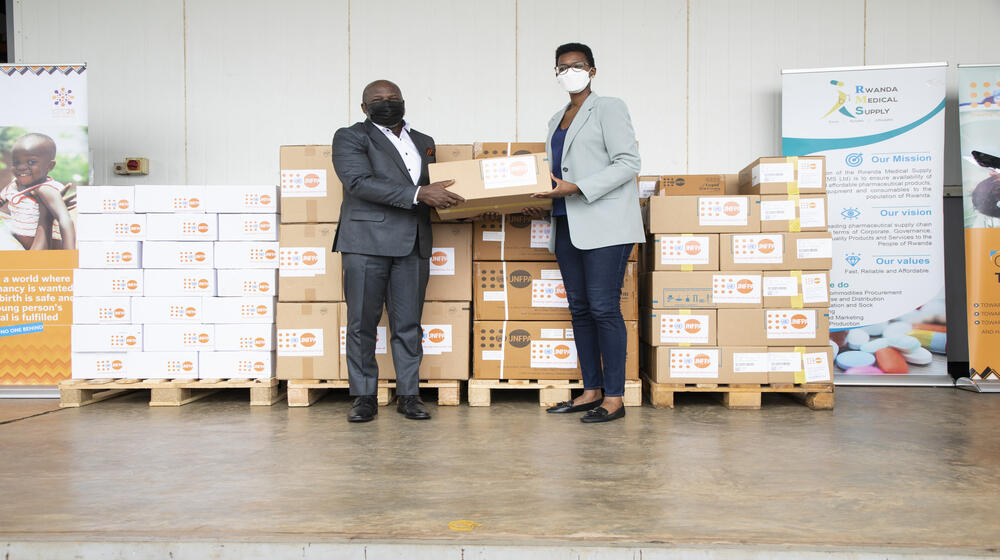Voluntary Family Planning is not only a matter of human rights for both women and men, it is central to gender equality and women’s empowerment, and it is a key factor in reducing poverty and accelerating economic growth. Yet, women who want to plan their pregnancies do not consistently have access to family planning methods. The reasons range from unavailability of family planning commodities, limited access to information and at times lack of support from partners or communities. This threatens their ability to build a better future for themselves, their families and their communities.
Rwanda has made remarkable progress in the health sector and has recently made significant strides in increasing domestic investments for family planning commodities. Aligned to the Family Planning 2030 (FP2030) global partnership, this commitment to investing in reproductive health and family planning interventions has yielded numerous benefits, not only in terms of individual well-being but also in unlocking Rwanda's economic potential. The correlation between harnessing the demographic dividend and family planning is one that Rwanda recognises as a country and the importance of domestic investment in family planning to achieve socio-economic transformation.
Enhancing Contraceptive Use and Reducing Unmet Needs
Access to contraceptive information is central to achieving gender equality. When women and couples are empowered to plan whether and when to have children, and how many, women’s autonomy is increased. This strengthens their economic security and well-being.
Over the past fifteen years, Rwanda has witnessed an impressive 48% increase in the Modern Contraceptive Prevalence Rate (mCPR) among married women (RDHS 2018/20). Furthermore, the country has successfully reduced the unmet need for family planning to 14% as of 2020. These achievements underscore the effectiveness of Rwanda's family planning programs in reaching and empowering marginalized populations.
Government Commitment and Domestic Financing
With an increase in domestic funding from 32% in 2010 to 58% in 2020, Rwanda has consistently demonstrated commitment to domestic resource mobilisation towards the health sector. Against this background, the Government of Rwanda has signed the Compact of Commitment with UNFPA to continue to invest in family planning commodities. The political will and commitment demonstrated by the government has not only boosted key health outcomes including sustainable family planning initiatives, but also facilitates continuous domestic resource mobilization to expand healthcare access to all, ensuring that no one is left behind. By investing in the health sector, the government aims to achieve the 15 percentage mark as set in the Abuja Declaration for the well-being of its population, including family planning interventions.
What is the UNFPA Supplies Match Fund?
In 2023, the government of Rwanda was awarded additional funding of over USD 1.0 million through the UNFPA Supplies Match Fund. The UNFPA Supplies Match Fund was no ordinary financial mechanism; it was a game-changer that leveraged additional government contributions. For every dollar Rwanda invested in ensuring access to quality-assured reproductive health and family planning commodities, the UNFPA matched it with another dollar. This initiative aims to encourage governments to increase their domestic financing for such essential commodities.
The impact of this initiative was beyond monetary gains; it signified a collective commitment to a brighter and healthier future for all citizens. UNFPA Supplies Match Fund together with Rwanda's Ministry of Health bridged longstanding gaps in reproductive health services. Contraceptives and maternal health medicines became readily available, empowering women and couples to make informed reproductive choices.
“At UNFPA, we firmly believe that match funding and leveraging domestic resources are not merely financial strategies; they are transformative catalysts. Embracing the Addis Ababa Declaration, we join hands with partners to magnify the impact of our investments in reproductive health and family planning. It's time to move beyond mere funding and embrace sustainable financing models, propelling us towards a future where every person's reproductive rights and choices are fully realized, empowering them to lead lives of dignity and opportunity."- Kwabena Asante Ntiamoah, UNFPA Rwanda Representative


